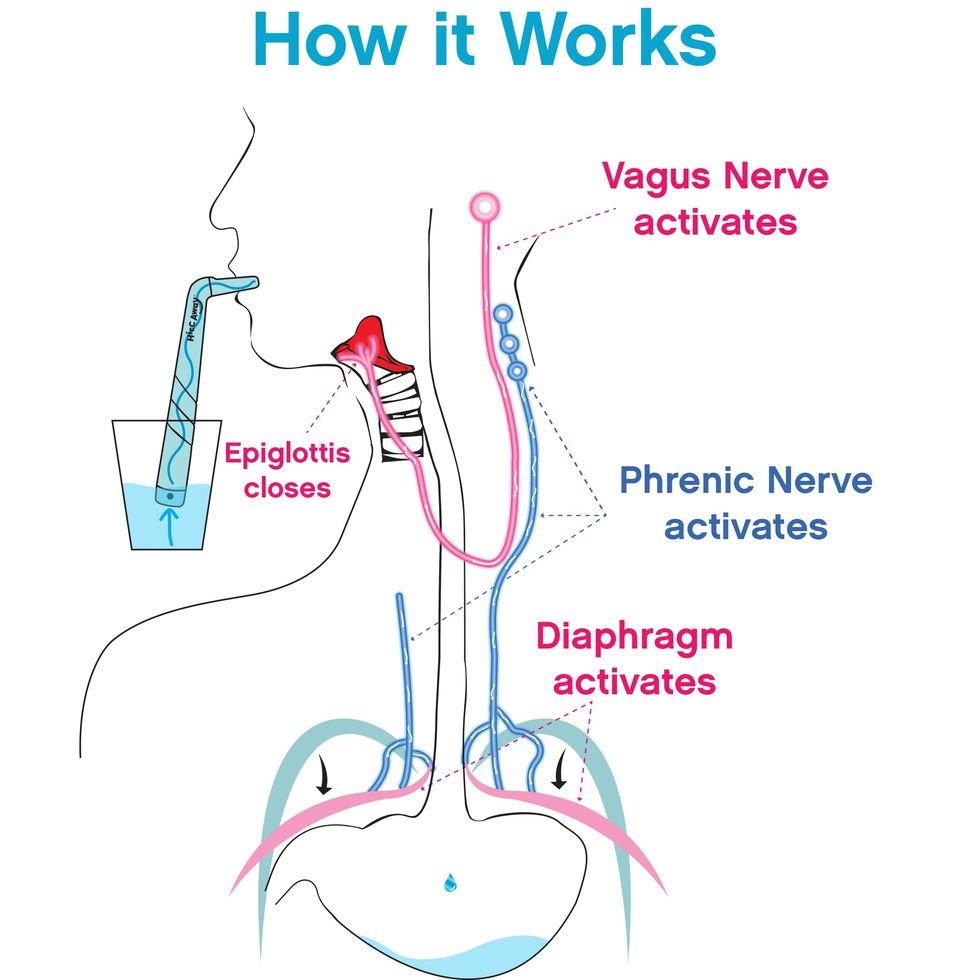Hiccups: annoying mystery
We’ve all been there: hit with a case of the hiccups, trying every trick in the book to get rid of them. From chugging water to holding our breath, these age-old remedies show our struggle with this involuntary reflex. But what exactly are hiccups, and why do we get them? Science is still unraveling the mystery.
Hiccup breakdown: nerve misfire
Hiccups begin with a sudden, involuntary spasm of the diaphragm, a crucial muscle beneath the lungs that aids in breathing. Normally, the diaphragm moves smoothly to facilitate breathing. However, irritation of specific nerves connected to the lower diaphragm can set off a chain reaction, causing the diaphragm to contract abruptly and the glottis (part of the voice box) to snap shut. This results in the characteristic “hic!” sound.

Hiccup culprits: spicy Food & more
Spicy food, fizzy drinks, and alcohol are common hiccup triggers. They irritate the nerves around the diaphragm. Other culprits include heartburn and even some medical conditions.
Read More: X’s decision to remove retweet, like, and reply buttons
Hiccups: burping reflex from our baby days?
While hiccups seem like a nuisance, scientists believe they might be an ancient reflex leftover from our baby days. When babies nurse, they swallow air. Hiccups, with their diaphragm contractions and glottis closure (the little flap in your voice box), might be a way to expel that air and help them breathe and feed better. This theory explains why hiccups are more common in babies – their diaphragms are weaker and more prone to spasms.
New hope for hiccup relief
While there is no universal cure for hiccups, Ali Seifi, a professor of neurosurgery, developed an innovative device called the FISST (Forced Inspiratory Suction and Swallow Tool) to combat persistent hiccups. The FISST works by requiring users to exert strong suction through a small tube, effectively overriding the diaphragm’s spasms. In a study published in JAMA Network Open, 90 per cent of participants reported successful relief from hiccups using the FISST, surpassing traditional home remedies.

Seifi later introduced the HiccAway, a consumer-friendly version of the FISST, which gained popularity after appearing on the TV show Shark Tank and is now available for purchase on platforms like Amazon.
Understanding the complex mechanisms behind hiccups can provide insights into managing and potentially alleviating this common annoyance. Whether using advanced devices like the HiccAway or relying on traditional remedies, the quest to conquer hiccups continues to blend ancient practices with modern scientific innovation.
















